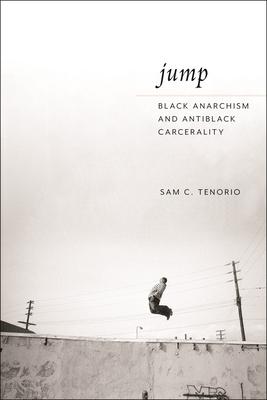Asks how we can better understand a politics of refusal
Writing a new story of Black politics, Jump emerges from the practice of enslaved Africans jumping overboard off their slavers' ships. Reading against the narrative that depoliticizes and denigrates the leaps of the enslaved as merely suicidal symptoms of chattel slavery and the Middle Passage, Sam C. Tenorio demonstrates how bringing these jumps to bear on the foundations of Black politics allows us to rethink a politics of refusal. In a period of increasing political mobilization against police brutality and mass incarceration, Jump attends to the layers of confinement that constitute the racial and gendered hierarchies of the antiblack world. Centering radical acts too often relegated to the periphery of Black politics, Tenorio proposes a Black anarchist politics of refusal that helps us to think dissent anew. Tracing iterations of the jump through the carceral wake of the slave ship, Tenorio explores the voyages of the Black Star Line in defiance of the bordered authority of the nation state, the Watts Rebellion of 1965 against the property relation of ghettoization, and Assata Shakur's abscondence from prison to Cuba. Ultimately, Tenorio argues that considering the jump as a progenitor of Black politics deepens and widens our conceptualization of the Black radical tradition and introduces a paradigm-shifting attention to Black anarchism.
Asks how we can better understand a politics of refusal
Writing a new story of Black politics, Jump emerges from the practice of enslaved Africans jumping overboard off their slavers' ships. Reading against the narrative that depoliticizes and denigrates the leaps of the enslaved as merely suicidal symptoms of chattel slavery and the Middle Passage, Sam C. Tenorio demonstrates how bringing these jumps to bear on the foundations of Black politics allows us to rethink a politics of refusal. In a period of increasing political mobilization against police brutality and mass incarceration, Jump attends to the layers of confinement that constitute the racial and gendered hierarchies of the antiblack world. Centering radical acts too often relegated to the periphery of Black politics, Tenorio proposes a Black anarchist politics of refusal that helps us to think dissent anew. Tracing iterations of the jump through the carceral wake of the slave ship, Tenorio explores the voyages of the Black Star Line in defiance of the bordered authority of the nation state, the Watts Rebellion of 1965 against the property relation of ghettoization, and Assata Shakur's abscondence from prison to Cuba. Ultimately, Tenorio argues that considering the jump as a progenitor of Black politics deepens and widens our conceptualization of the Black radical tradition and introduces a paradigm-shifting attention to Black anarchism.Paperback
$29.56